Growth Hormone
Growth hormone, also known as somatotropin, is a peptide hormone that stimulates growth, cell reproduction, and regeneration in humans and animals. It is produced by the somatotroph cells of the anterior pituitary gland and is essential for the growth and development of bones and tissues.
Functions of Growth Hormone
Growth hormone plays a crucial role in several physiological processes:
- Promotion of growth and development in children and adolescents
- Regulation of metabolism, including the stimulation of protein synthesis and breakdown of fats for energy production
- Stimulation of cell growth, reproduction, and regeneration
- Maintenance of healthy body composition and muscle mass
- Support of proper function of the immune system
Regulation of Growth Hormone
Growth hormone secretion is regulated by a complex interplay of hormones and signaling pathways. The release of growth hormone is primarily controlled by two key factors:
- Hypothalamus: The hypothalamus releases growth hormone-releasing hormone (GHRH) to stimulate the production and release of growth hormone from the pituitary gland.
- Negative Feedback: Elevated levels of growth hormone in the blood can inhibit the further release of growth hormone through a negative feedback loop involving the hypothalamus and the pituitary gland.
Disorders Related to Growth Hormone
Imbalances in growth hormone levels can lead to various disorders:
- Growth Hormone Deficiency: Inadequate production of growth hormone can result in stunted growth and development in children and a range of metabolic disturbances in adults.
- Acromegaly: Excessive production of growth hormone in adults can lead to abnormal growth of bones and tissues, often resulting in enlarged hands, feet, and facial features.
Study Guide
When studying growth hormone, it is important to focus on the following key points:
- Understand the role of growth hormone in growth and development.
- Examine the regulation of growth hormone secretion and the factors that influence its release.
- Explore the physiological functions of growth hormone in metabolism, cell growth, and immune function.
- Identify and differentiate between disorders related to growth hormone, such as growth hormone deficiency and acromegaly.
Remember to review the feedback loops involved in the regulation of growth hormone secretion and understand the interconnected roles of the hypothalamus and pituitary gland in this process.
.◂Science Worksheets and Study Guides Eighth Grade. Organic compounds
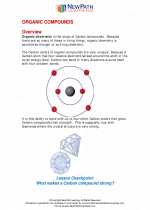
 Worksheet/Answer key
Worksheet/Answer key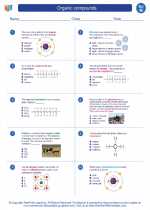
 Worksheet/Answer key
Worksheet/Answer key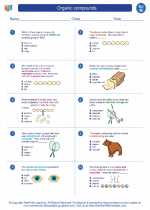
 Worksheet/Answer key
Worksheet/Answer key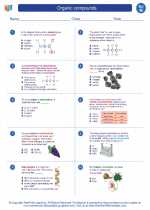
 Vocabulary/Answer key
Vocabulary/Answer key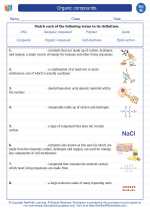
 Vocabulary/Answer key
Vocabulary/Answer key
